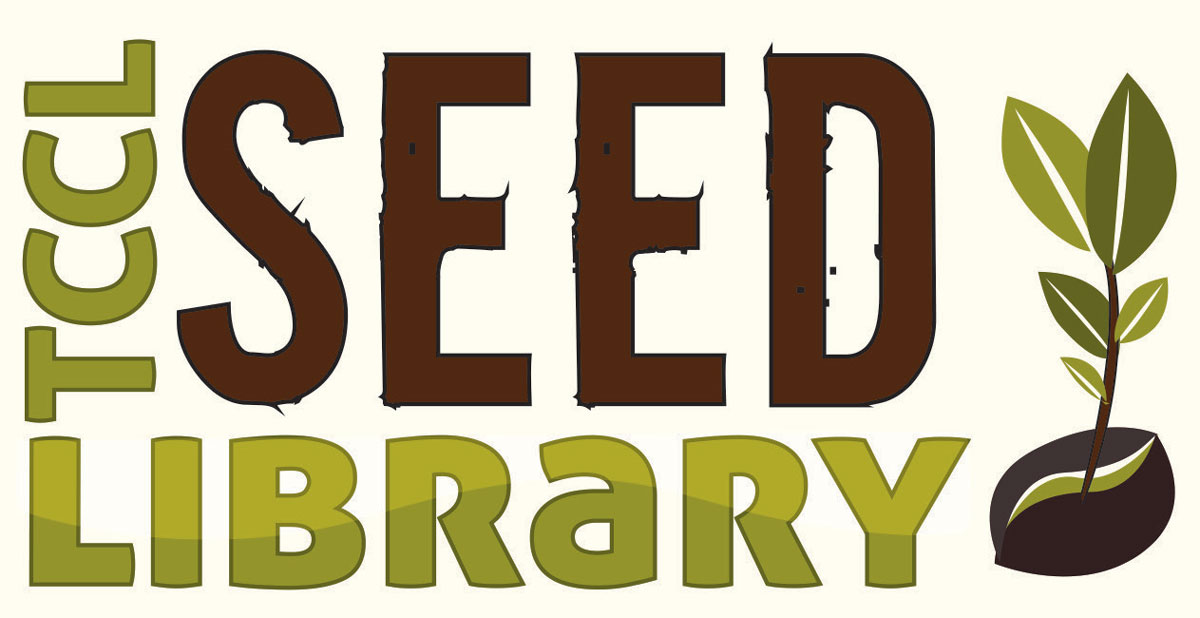TCCL Seed Library Adds Heirloom Seeds to Its Public Offerings
This spring you can check out purple carrots, freckled lettuces and a rainbow of heirloom tomatoes at the library: Tulsa City-County Library is piloting a seed library where Tulsans can share home-saved garden seeds.
What is a seed library? It’s a public, circulating collection of open-pollinated and heirloom seeds. Check out seeds from the library, grow your garden and save seeds from your best plants to return to the library for others. You can select for hardiness, pest- or disease-resistance, drought-tolerance, flavor, even looks.
Why bother saving seeds at home, and why share what you save? Resilience is a buzzword you hear a lot these days—it’s the new “sustainable”— but in ecology it means something concrete: the ability to withstand and recover from damage. Ecosystems get this elasticity from inefficiency, redundancy and layers. The seed library fosters both ecological and community resilience by sharing access to seeds and the seeds themselves.
The seed library increases access to seeds, to gardening, to healthy food and healthy exercise. 38% of Tulsa is considered a food desert and, while home gardening is a very minor remedy, we should take every chance we get to dissolve barriers to health. Home seed-saving is hands-on science and a way to connect with your garden. It’s also a way to share and honor the growing cultures and traditions Tulsa is rich in.
By encouraging garden diversity, with open-pollinated varieties that are a little off the beaten path, the seed library encourages biological diversity, strengthening the layers and niches that make an ecosystem healthy. And whatever you think about climate change, Oklahoma weather is weird. We ask a lot of a plant to put up with our extremes, more than national seed companies can always promise. By saving seeds where we live we can ensure plants that thrive where we live. Seed-savers can select for our particular climate, pests, diseases, gradually curating varieties uniquely suited for Tulsa. When we grow plants that are happy here, we can work less for better harvests: less watering, less spraying, less disappointment. That also means more water for us to drink, more butterflies and bees and more joy in the garden.
And most importantly, we can eat better food.
Why have seeds at the library? Because each seed is a tiny packet of information, the story of its breeding and its future, and sharing information is what libraries do.
How does that work?
Check out up to five packets per season of vegetable, herb and flower seeds at Glenpool, Suburban Acres, Nathan Hale, Zarrow or the Bookmobile—or request seeds from the catalog and pick them up at your favorite branch.
Choose from easy-to-save, medium or advanced-to-save, depending on your skills and commitment.
Grow your garden and let the best plants go to seed.
Collect the seed, dry, label and return some to the library.
Don’t worry about penalties for a bad year; seeds are fine-free. If a plant doesn’t thrive for you, we don’t want it back.
We welcome donations of open-pollinated seeds!
For more info, check out: Guides.TulsaLibrary.org/tulsaseedlibrary
You can also join the Facebook community of seed savers, Tulsa Seed Commons: Facebook.com/groups/tulsaseedcommons/





